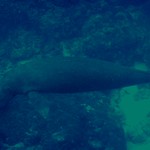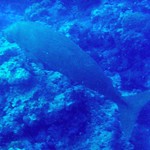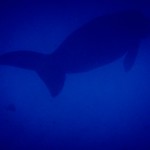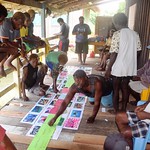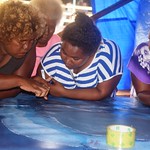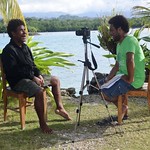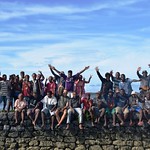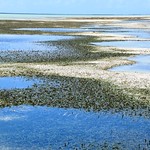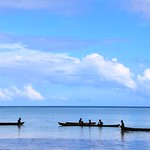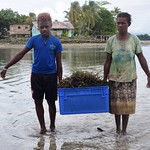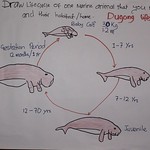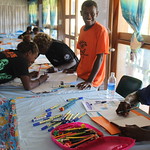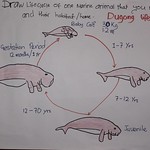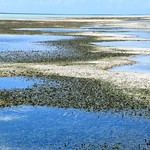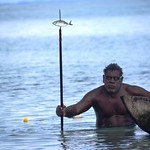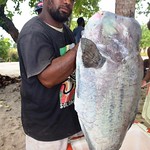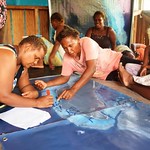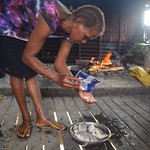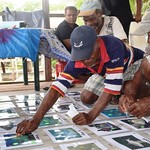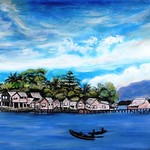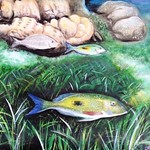Mapping critical seagrass fisheries habitats in Lau Lagoon, Solomon Islands (SB3).
Solomon Islands: Lau Lagoon
$141,341
SB3 aims to overcome existing knowledge barriers concerning the distribution, status and ecology of seagrass ecosystems in Lau Lagoon, Malaita Province, Solomon Islands.
The project will address the problem of habitat degradation and the lack of associated information by undertaking participatory mapping of seagrass beds and key fisheries habitats in the Lagoon (particularly those of rabbitfishes and other commercially and culturally important species, including dugong).
Developing maps in a participatory way with communities and partners will help to build the capacity of communities and provincial/national governments in undertaking environmental management efforts. Maps will be made available to communities and the provincial government as planning tools.
SB3 will also aim to document indigenous knowledge on fauna (including dugongs) associated with seagrass beds in Lau Lagoon and other communities in the Western Province through the Solomon Islands Community Conservation Partnership (SICCP).
The results of the project’s activities and the final maps will be presented to local communities. The Lau lagoon area has been identified as a potential new site for development activities; therefore a policy brief will be developed based on the outcomes of the mapping exercise to inform decision-making regarding lagoonal seagrass ecosystems by the National Facilitating Committee and the Malaita Provincial Government.
Deliverables
- Conduct participatory mapping of seagrass beds and rabbitfish habitats in Lau Lagoon and distribute the final map to the Malaita Provincial Government and Ministry of Environment, Climate Change, Disaster Management and Meteorology (MECDM) to build the capacities of local communities and the provincial/national governments.
- Document indigenous knowledge on fauna (including dugongs) associated with seagrass beds in Lau Lagoon and other communities in the Western Province through SICCP.
- Promote awareness of outcomes and participatory planning for environmental management.
- Produce and present a policy brief to the National Facilitating Committee and Provincial Government by September 2018 to inform improved policy for the management and development of lagoonal seagrass ecosystems.
